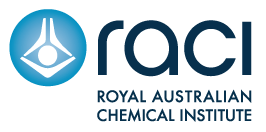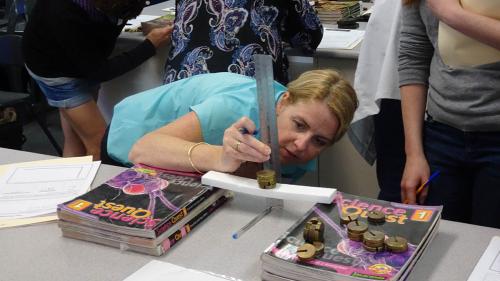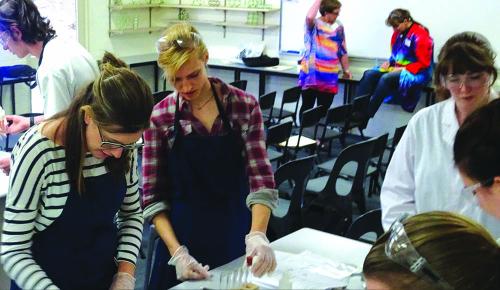Laboratories are the signature pedagogy in chemistry education (see April 2005 issue, pp 11–12; September 2013 issue, p. 35). Good laboratory learning engages students in the practices of science at many levels, including but not limited to the development of technical skills, demonstration of theoretical concepts, development of generic skills such as occupational health and safety practices, team work, verbal and written communication skills, and many others. However, many laboratory programs do not realise their potential. Some reasons for this are fear of chemical hazards, poor pedagogy, out of date practices, uninteresting activities, lack of class time, and lack of expertise on the part of the teacher–instructors. A typical example would be a year 12 teacher developing a laboratory activity, but the year 9 classroom teachers either not using the activity or omitting parts of it because they lack confidence with the concepts.
The ASELL (Advancing Science and Engineering through Laboratory Learning) project and its earlier incarnations (see March 2001 issue, pp. 37–8) have shared the best laboratory activities from many Australian universities sine 1999. There are guidelines for comprehensive documentation, so that technical staff can set up the experiment at a new institution and novice instructors can run experiments with confidence. ASELL methodology also enables the evaluation of the effectiveness of the laboratory activities, and this data can be used either for systematic improvement of a not-quite-right activity or for benchmarking. Along the way, ASELL also provided professional development and created a network of educators interested in laboratory learning.
The Office of the Chief Scientist has noted that the STEM disciplines are in danger of decline and recommended that ASELL for Schools should be part of the solution. Since 2012, ASELL for Schools has worked with school teachers to improve student engagement in science by enhancing laboratory experiences, and building capacity amongst teachers through opportunities to refine teachers’ pedagogical content knowledge through the processes of reviewing experiments, implementing these procedures in their science classes and reflecting on their classroom practice. ASELL for Schools has expanded the project to five states and territories through a grant of about $2 million from the Australian Maths and Science Partnerships Program, with additional support from the Australian Council of the Deans of Science, Australian Government Office for Learning and Teaching’s ReMSTEP program, and other sources.
Typically, a school teacher collaborates with the ASELL team of university scientists, engineers and educators to enhance an existing laboratory activity, which is not currently achieving desired learning outcomes, or to design a new activity. Experiments are radically re-thought and aligned with intended learning outcomes and what is interesting and relevant to students. Such experimental activities are showcased at a workshop, which has a combination of hands-on practical, professional development and networking sessions. School students and teachers critique the laboratory activities, with feedback leading to a further round of enhancements. Finally, the laboratory activity is implemented and evaluated in the teacher’s school. Another important aspect is that the workshop participants disseminate the ASELL ideas as they report back to their colleagues in their own schools.
During 2015, ASELL for Schools workshops have been run in Adelaide, Armidale, Darwin, Melbourne, Parramatta, Port Macquarie, Sydney and Tamworth, with shorter professional development sessions in Adelaide, Launceston, Melbourne, Perth, Sydney and elsewhere. Many more collaborations and workshops are planned for 2016 and 2017. For further information about ASELL for Schools, please contact Manjula Sharma or Vicky Tzioumis vicky.tzioumis@sydney.edu.au.




